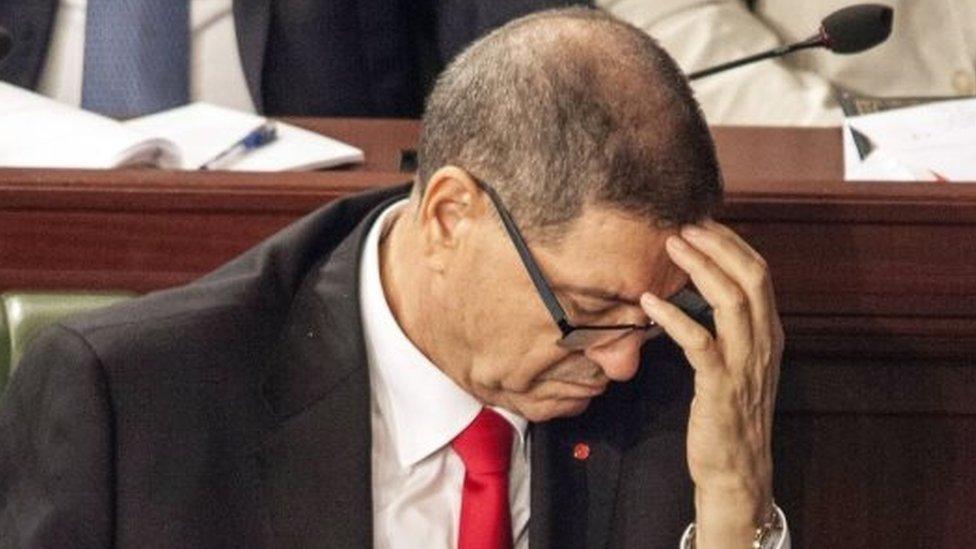Tunisia parliament votes to sack PM Habib Essid
- Published

The government of PM Habib Essid is now expected to resign
Tunisia's parliament has passed a vote of no confidence in Prime Minister Habib Essid, effectively dismissing the government of the US-trained economist.
A total of 188 MPs voted to sack Mr Essid, with only three supporting him.
Mr Essid, who has been in office less than two years, has faced criticism for what his opponents say is his failure to push through economic reforms.
President Beji Caid Essebsi last month called for a national unity government to break months of economic turmoil.

More than a third of young people in Tunisia are without work
Unemployment has worsened since the 2011 revolution, when President Zine al-Abidine Ben Ali was ousted. More than a third of young people in Tunisia are without work.
Tunisia's uprising was the first of the Arab Spring, and often hailed as the most successful with the country now functioning as a parliamentary democracy.

Analysis: BBC's Rana Jawad in Tunis
The confidence vote came after a month of wrangling over the fate of the prime minister, following pressure on him from the country's president to resign. Mr Essid refused to step down, citing respect for the constitutional process and instead called on the Tunisian parliament to decide his fate.
In the end, an overwhelming majority of MPs voted to oust him from office. Most lawmakers accused him of failing to deliver on economic reforms needed to ease the country's high unemployment rates.
In June, the Tunisian president proposed the formation of a new unity government, arguing that the country needed a leadership that could carry out bold reforms.
But some observers believe that the vote is also a consequence of the prime minister's detachment from party politics. Mr Essid recently accused leading parties of trying to pressure him into making changes to the cabinet, which he says he refused to comply with. It is not clear who will succeed him at this time, but parliament will start negotiations over the matter on Monday.
- Published22 January 2016

- Published18 January 2016

- Published10 December 2015

- Published12 October 2015
